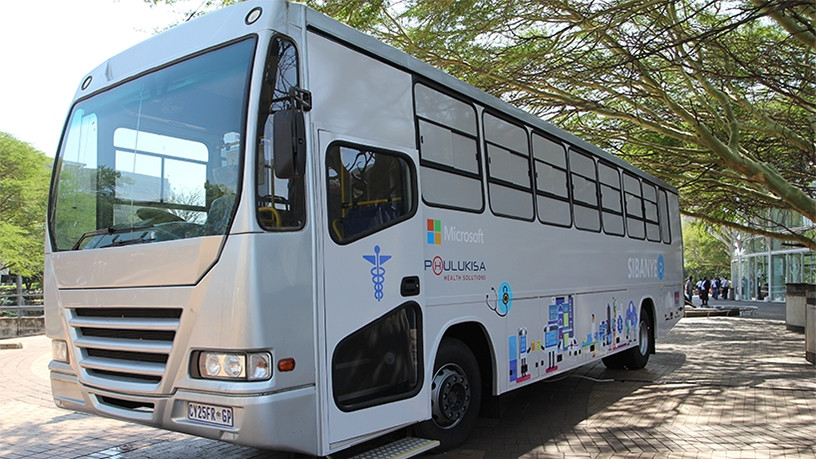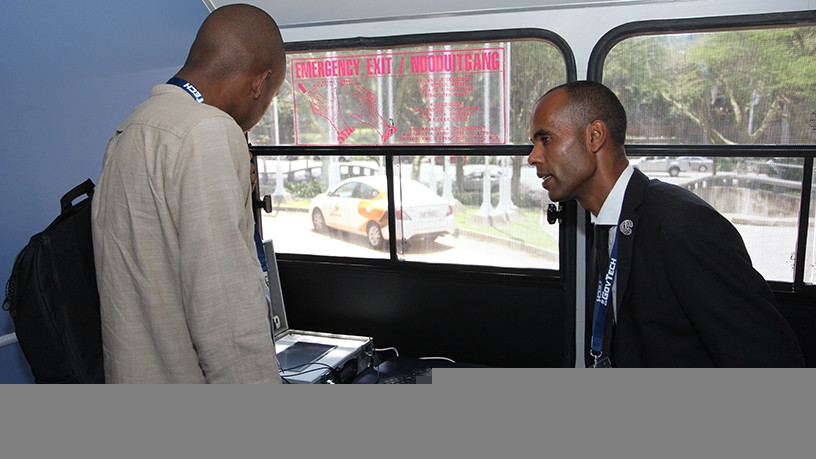
Local urologist Dr Raymond Campbell has invented a mobile medical solution to enhance patient care and reach underserved communities throughout the country.
Phulukisa's health solution, which includes a bus that doubles as a mobile clinic, and a mobile app, will also help government determine whether it is feasible to build a permanent clinic within a particular area.
"The goal of the app and medical bus is to become a platform through which to screen the top seven preventable diseases [measles, polio, diphtheria, whooping cough (pertussis), tetanus, hepatitis B, haemophilus influenzae, TB, pneumococcal diseases] in the country. With the app, primary health care workers can electronically capture the medical information of patients such as their weight, body mass index, and blood pressure using IOT sensors and store these files in the cloud thanks to the app being built on Microsoft's Azure cloud platform. These metrics feed into an algorithm which will flag only abnormalities and help to triage and escalate serious conditions," explained Campbell.
After having analysed all the variables, patients are also attributed a score of between 0 and 100, which translates as an output into green, orange or red. Based on that colour, the patient either gets seen electively (green) or immediately (red).
Patients then receive a summary of their health analytics upon conclusion of the test by way of SMS, avoiding duplication of testing.
According to Campbell, the app will also contribute to lessening the waiting time as well as costs for patients, "because the patients are triaged immediately and the results are always accessible through the cloud. The waiting time for patients at clinics will also be significantly reduced. By allowing clients co-custodianship of their records, no time will be lost searching for physical files or gathering information that has been lost for instance."
Campbell adds a significant benefit of storing such data in the cloud is that it will allow for continuity across different clinics and different clinicians. "We are very keen to help introduce a 'one client, one number, one file' type of model that works across cities and provinces.
"When dealing with an ambitious project like rolling out more affordable healthcare to all South Africans, you need to have stable connectivity, ample capacity for storage and analytics, fantastic support and also very importantly, be compliant with local as well as international personal information legislation. We are very comfortable that Microsoft represents the very best in what we were looking for in a partner."

Warren Hero, national technology officer at Microsoft SA, says the healthcare industry is also undergoing a digital transformation. "Focusing on patient outcomes through evidenced-based decision-making underpinned by technology will have a significant impact on the cost and value equations in healthcare. The potential of integrating big data, cloud and artificial intelligence to ensure access for all South Africans to quality healthcare is the basis for a sustainable, competitive nation."
The medical mobile solution is currently on display at Govtech 2017 hosted by The State Information Technology Agency (SITA) at the Durban ICC.
Share